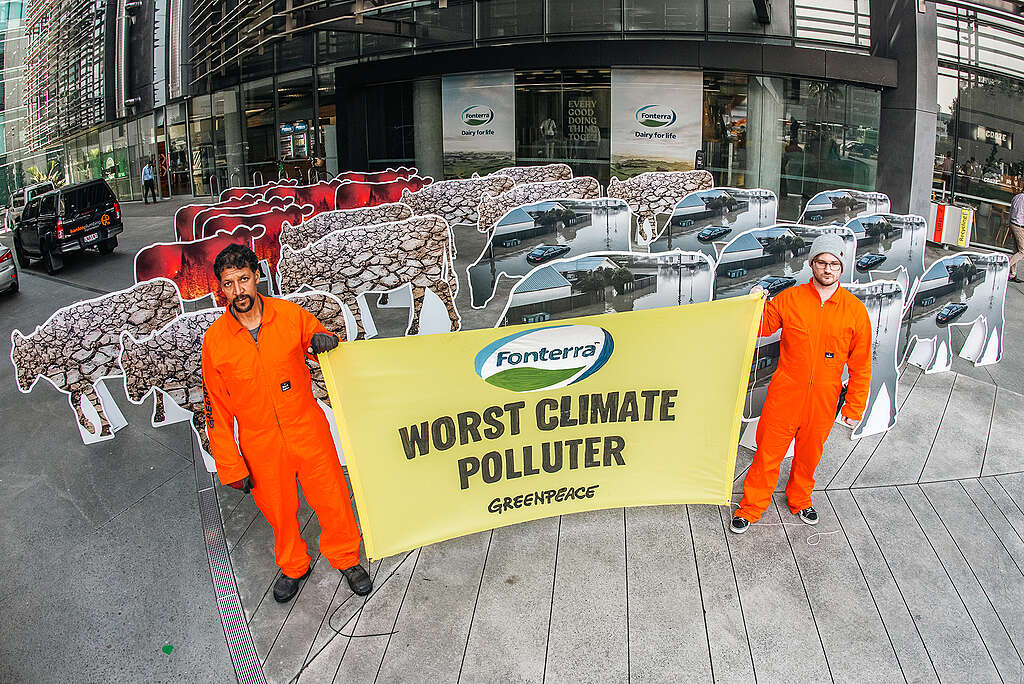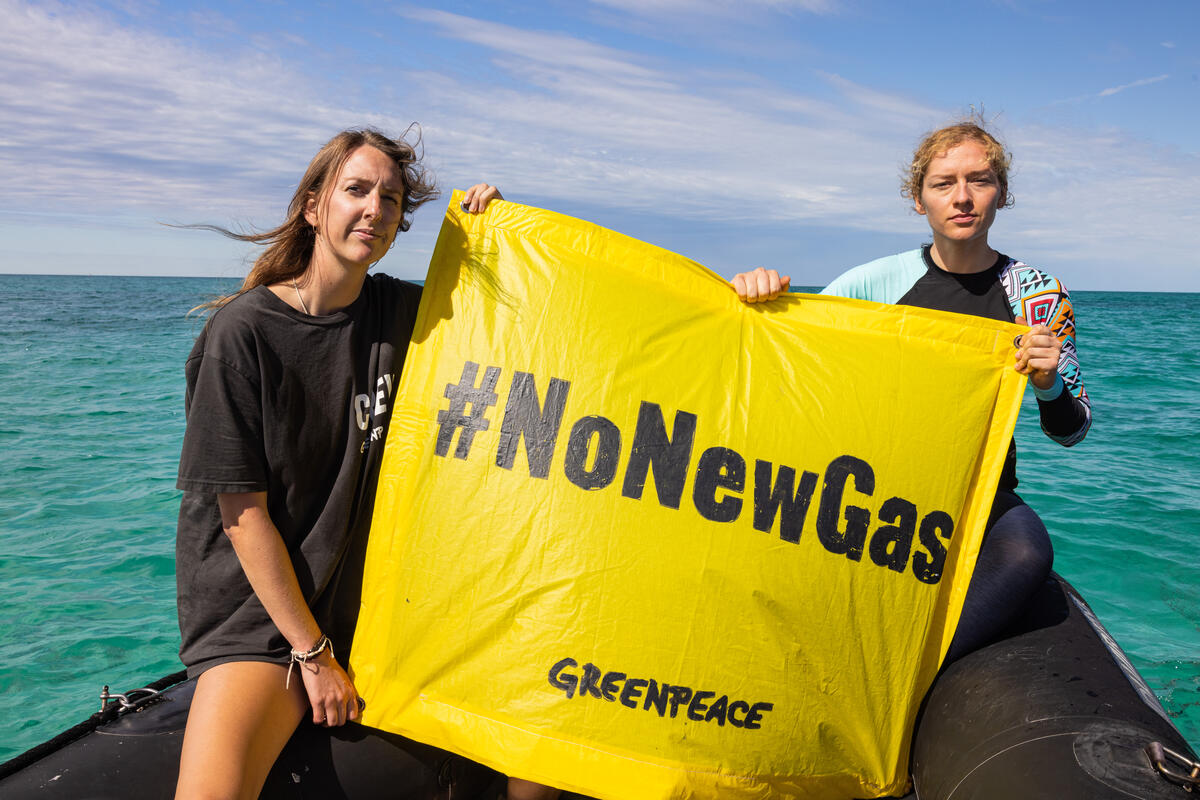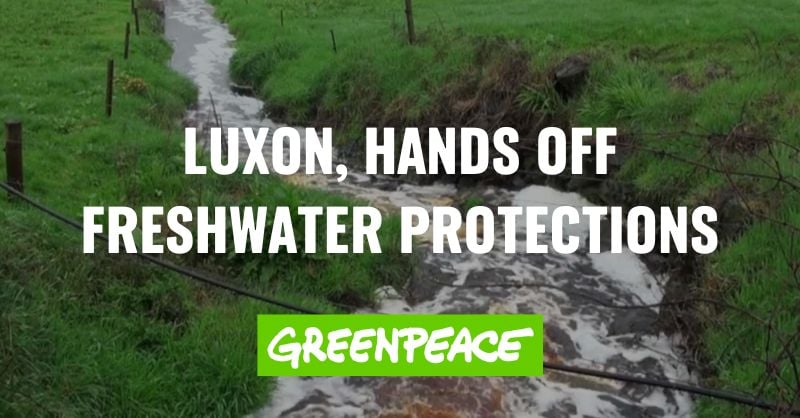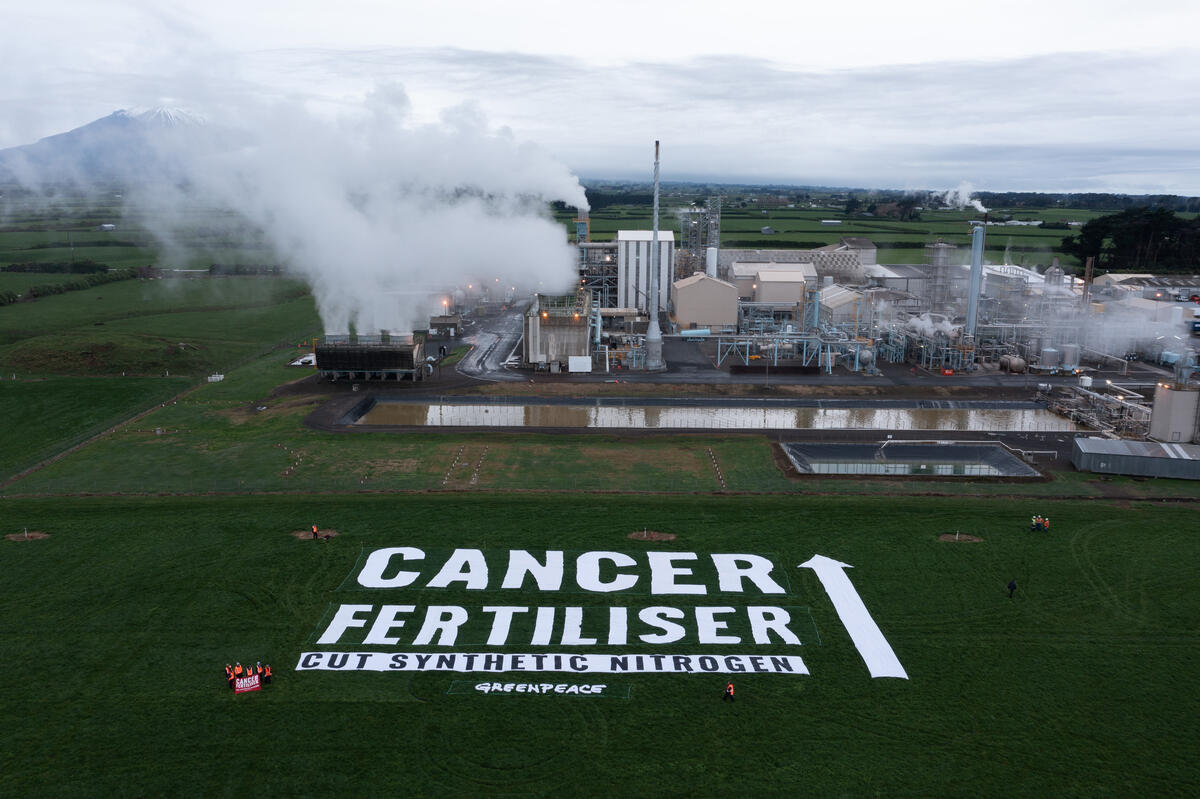Greenpeace activists have corralled a herd of ‘disaster cows’ in front of Fonterra’s Auckland HQ on the dairy giant’s annual reporting day as the dairy giant announced an increased after-tax profit of $1.577 billion compared with $583 million the previous year.

Greenpeace spokesperson Christine Rose says, “We’re at Fonterra’s head office on its annual reporting day to bring attention to the fact that the dairy giant is capitalising on climate pollution caused by too many cows.”
“Big Dairy is New Zealand’s worst climate polluter. The industry has been downplaying its role in the climate crisis and delaying action to cut climate pollution for far too long.”
Greenpeace activists installed a series of climate disaster images in the shape of cows in the courtyard in front of Fonterra’s head offices early this morning.
Rose says, “The intensive dairy industry’s drive for profit has led to too many cows being crammed onto the land. New Zealand’s giant dairy herd and the synthetic nitrogen fertiliser used to grow enough grass to feed it pollutes the climate with superheating methane and nitrous oxide gas. This has contributed to the devastating climate disasters we’ve seen this year – from fires in Maui, Hawai’i, to Cyclone Gabrielle here in Aotearoa.”
Between 1990 and 2019, the number of cows in New Zealand doubled from three million to six million. Dairy cattle alone account for almost a quarter of the country’s climate pollution. Fonterra is New Zealand’s worst climate polluter.
Greenpeace says its action today is a reminder that industry and political leaders can’t keep giving dairy a free pass to pollute not only the climate but also New Zealand’s rivers, lakes and drinking water.
“It doesn’t have to be this way,” says Rose. “We can stop climate change from getting worse, but we need all political leaders to stand up to Big Dairy polluters like Fonterra and commit to urgent action to phase out synthetic nitrogen fertiliser and reduce the dairy herd.”
“We can do farming differently, in a way that allows people and nature to thrive. Farming in Aotearoa must switch to more plant-based regenerative, organic farming practices that work with, instead of against, nature. And all politicians must support this transition.”
Greenpeace, along with more than 50 other organisations, is calling for urgent climate action in the lead-up to the election, including on intensive dairy. They have produced a ten-point plan for climate action, known as Climate Shift. More than 15,000 New Zealanders have signed on in support of Climate Shift so far.




